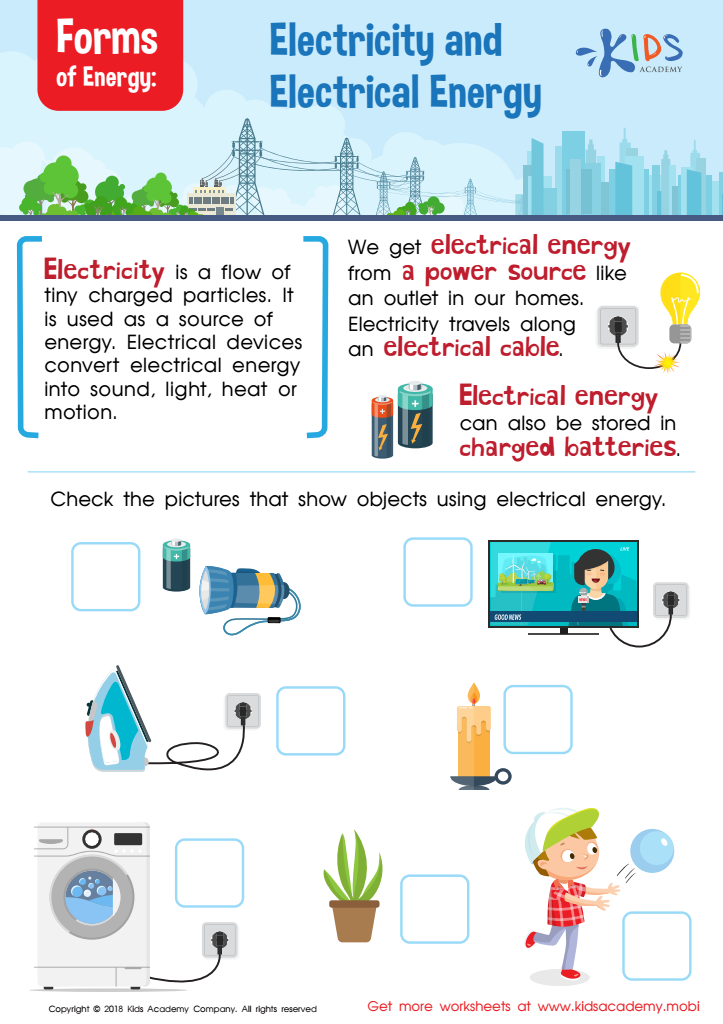Energy types understanding Worksheets for Kids
1 filtered results
-
From - To


Forms of Energy Worksheet
Question/Answer
How to test a Grade 3 student’s Energy types understanding skills?
To test a Grade 3 student's understanding of energy types, present them with a set of objects or scenarios (e. g. , a moving car, a glowing light bulb, a growing plant, a windmill) and ask them to identify the type of energy each one demonstrates (kinetic, electric, chemical, wind).
What does the Energy types understanding skill mean when it comes to Grade 3 Physical Science learning?
The Energy Types Understanding skill in Grade 3 Physical Science involves recognizing and explaining different forms of energy, such as light, heat, sound, electrical, and mechanical energy. It includes identifying examples of each energy type in everyday life and understanding the basic concept that energy can change from one form to another but is never lost.
How does the mastery of the Energy types understanding skill affect a student's performance at an early age?
Mastery of the Energy types understanding skill at an early age significantly enhances a student's ability to grasp fundamental scientific concepts, encourages critical thinking, and fosters a deeper interest in science. It provides a solid foundation for advanced studies in physics and chemistry, improving overall academic performance and potentially sparking a lifelong interest in science and technology fields.
 Assign to the classroom
Assign to the classroom











